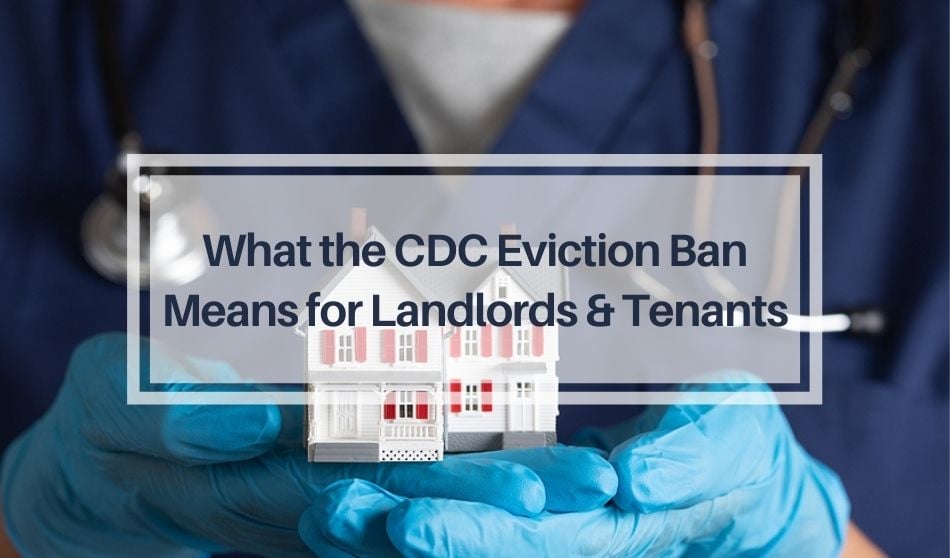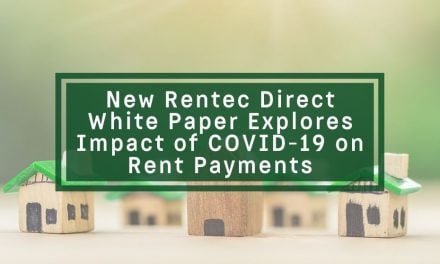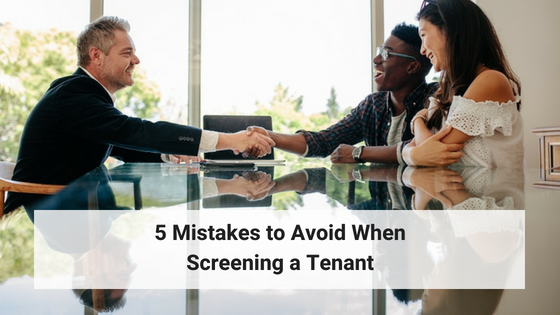
What does the eviction moratorium mean for landlords and tenants? Month-after-month rent payments continue to decline. According to a recent report, 35 percent of renters failed to make a partial or full payment on their rent in September. The federal government released a stopgap measure this month to prevent an anticipated avalanche of evictions.
This article breaks down the federal eviction moratorium order to help landlords and tenants stay in compliance without undue consequences.
KEY POINTS
- The Centers for Disease Control and Prevention (CDC) within the Department of Health and Human Services (HHS) stepped in and released an agency order early this month that temporarily halts residential evictions through the end of the year in an attempt to slow the spread of COVID-19.
- All adult occupants are required to individually declare they meet certain qualifications to be eligible and must in best efforts continue to make payments. Penalties for perjury can apply.
- In most cases, a state, county, or city eviction moratorium supersedes the national ban; especially if it provides the same or greater level of public-health protections.
- Landlords can face jail time and hefty fines if they process an eviction that violates the national ban, yet some states and local jurisdictions have disparate interpretations and processes for the nationwide order.
Why Was the National Eviction Moratorium Deemed Necessary?
CDC and HHS based their decision on the Census Bureau American Housing Survey where 32% of tenants stated that if evicted they would move in with friends or relatives. Those that could not find suitable housing would be left homeless or would find themselves in transitional housing, shelters, or other facilities.
In August, 23 million households were in danger of eviction and anticipated up to 44 million currently with an anticipated continued decline in rent payments. With these statistics, the government believes processing evictions would likely result in a significant rise in infection rates nationwide by displacing tenants into new living arrangements.
When and Where is the Nationwide Eviction Ban in Force?
The CDC agency order became effective September 4th and remains in effect until December 31st, 2020 unless modified or extended. It is enforceable nationwide but can be superseded by state or local orders.
Update: As of March 29, 2021 CDC Director Dr. Rochelle Walensky has signed an extension to the eviction moratorium. The has been extended through June 30, 2021.
Landlord Information About the Federal Eviction Moratorium
- Evictions are not allowed for non-payment or underpayment of rent if the occupants have fulfilled their obligations and submitted the appropriate forms.
- Evictions are allowed for other reasons such as lease violations.
- Penalties for processing an eviction that violates this order can result in up to $100,000 fine and one year in jail.
- If a violation results in the death of a tenant the penalty can be up to $250,000 and a year in jail.
- Not only can individual landlords be subject to fines and imprisonment but also an organization may be subject to $200,000 – $500,000 fine. It is unclear if the courts will impose fines and penalties on all parties such as the homeowner, property management company, and properties under an LLC or choose to prosecute only one offending party.
- State and local moratoriums on residential evictions supersede this federal order if they provide the same or greater level of public-health protection and does not preclude them from imposing additional requirements. Meaning, check with your local and state regulations often.
Important Notes:
Legal professionals and local and state courts are scrambling to decipher and interpret the order. This results in different decisions on how or if the courts will process and vet affidavits or entertain any evictions until next year.
This is not the time for any do-it-yourself measures when it comes to serving notices or processing evictions for any reason. Seek legal advice to make sure you comply with all eviction bans.
The six-page full agency order detailing the specifics, including criminal penalties and tenant requirements can be found here:
Temporary Halt in Residential Evictions To Prevent the Further Spread of COVID-19.
Tenant Information About the Moratorium Order
For a tenant(s) to qualify under this order each adult on the lease or agreement:
- Tenants must complete, sign, and submit to the landlord a declaration under penalty of perjury that they qualify.
- They must use best efforts to obtain all available government assistance for rent or housing.
- Must have a substantial loss (which includes loss of household income due to loss of work hours, lay-offs, or extraordinary out-of-pocket medical expenses likely to exceed 7.5% of one’s adjusted gross income for the year.
- Made best efforts to make timely partial payments that are as close to the full payment as circumstances permit – taking into account other nondiscretionary expenses.
- Must fall within earning caps (not to exceed $99,000 in 2020 ($198k if filing joint tax returns), or was not required to report any income in 2019 to the IRS, or received the CARES Act stimulus check.
- Would likely become homeless, move into a shelter, or a new residence shared by other people with no other housing options.
- Must still pay rent or make payments and comply with all other rental obligations. Fees, penalties, or interest for not paying or paying late may still be charged or collected.
- At the end of the expiration date of this declaration, the landlord may demand payment in full and failure to pay may make them subject to eviction.
Important Notes:
Tenants who submit a false declaration may face criminal and civil actions such as fines, penalties, damages, or imprisonment.
The moratorium does not relieve the tenants from the obligation to pay rent. If not now, after the moratoriums are lifted, landlords might seek rent recovery through small claims court. If the court finds in the landlords favor it may result in garnished wages, repossession of assets, or other court-ordered awards.
The two-page printable declaration offered by this order can be found here:
[FORM} Declaration Under Penalty of Perjury for The Centers For Disease Control and Prevention’s Temporary Halt in Evictions to Prevent Further Spread of COVID-19
Importance of Communication and Documentation
With severe penalties, fines, and even jail time on the line, now more than ever it’s vital to have good communication between landlords and tenants. From creative payment plans to offering resource information, landlords can help tenants stay as current as possible with their rent obligation so that when this and other moratoriums have ended, an eviction at that time can be avoided.
If your tenants are struggling to pay rent, you may want to offer them these handy tips:
Tenant Resources to Help with Rent and Other Financial Assistance
Final Thoughts
These are confusing and troubling times navigating the pandemic while balancing the responsibilities of meeting financial obligations. Many tenants are losing the battle. Landlords and tenants are in a delicate dance where tenants are trying to avoid homelessness and landlords foreclosure.
This new nationwide eviction moratorium was a quick stopgap measure which is adding to the complexity of property management tasks. More questions and discussions continue to arise while landlords and tenants grapple to pay rent and mortgage in the wake of the pandemic.
Again, be diligent to check with all local and state regulations and reach out to an attorney before moving forward on any demand or notices for rent payments.






There She Goes Again! “Heather Delivers” should be the title. Thank you again Heather for your detailed and thorough delivery of an unfortunate topic. I know I’m not alone in this mess, and because of your articles I finally feel like I have a partner in this situation. Know that your efforts to educate really, truly make a difference.
Is there a way to ask you questions I don’t want made public?
Teri
Thank you Teri! You are NOT alone in this mess and I’m glad that comes across. I have been in your shoes but can only imagine how difficult it has become under these circumstances. I think the only way through this is together.
I sent you an email directly to see how we might help with your questions but of course, anyone with rental-related questions can feel free to reach out to me at hpeake@rentecdirect.com
In the meantime, thank you again for taking the time out of your busy day to leave such encouraging feedback.
Do the Tenants getting Rent Relief have to pay it back?also I am not a lease since winter storm I was on list i low income apt. And my job plus all the painters’ repairs ceilings crashing in sloppy work. Plus my test fir Mold in air was ignored.i pay my updated amount Rent plus 67.00 water for 1bedroom . They keep putting 760.00 or more additional on my balance.The supervisor approved to remove and Mgr has ignored.please advise.?
Patsy Carlson
Hi Patsy, from all that I’ve researched tenants aren’t being asked to pay back rent relief assistance. In regards to the billing issue, since you say the supervisor agreed to make changes, I would reach back out to them to let them know the manager has yet to take care of that for you. As for your concerns about habitability, I recommend reaching out to your local housing authority to ask what items the landlord is responsible for repairing or improving.
I’ll share a press release just issued this Friday 9-18-2020:
<>